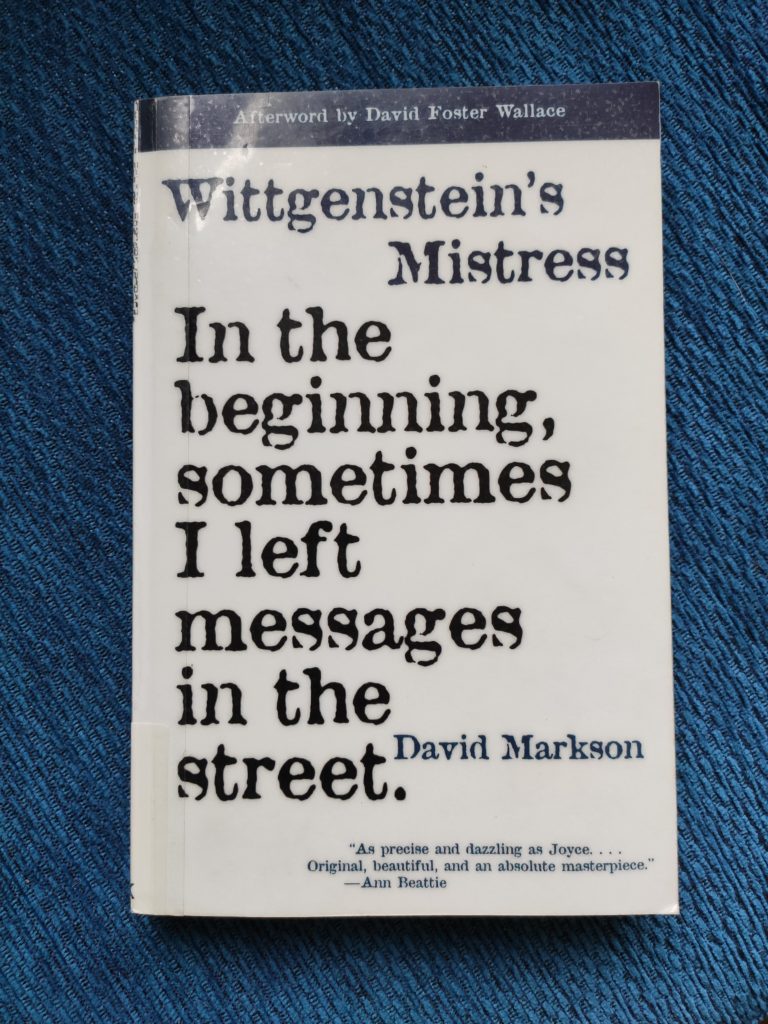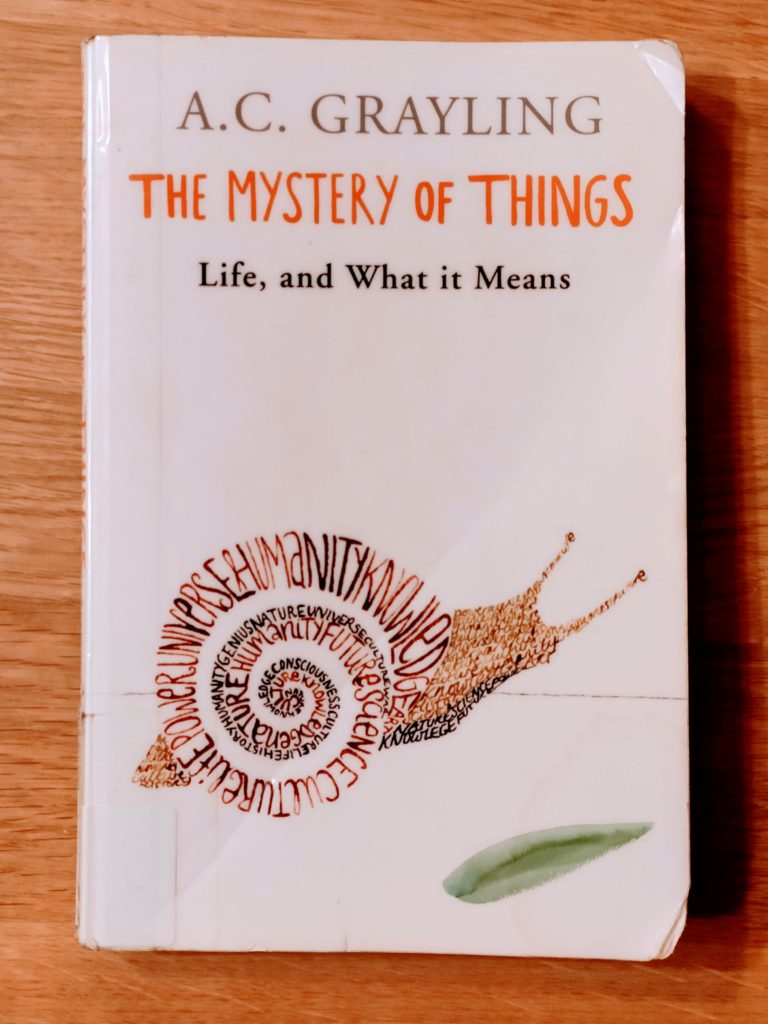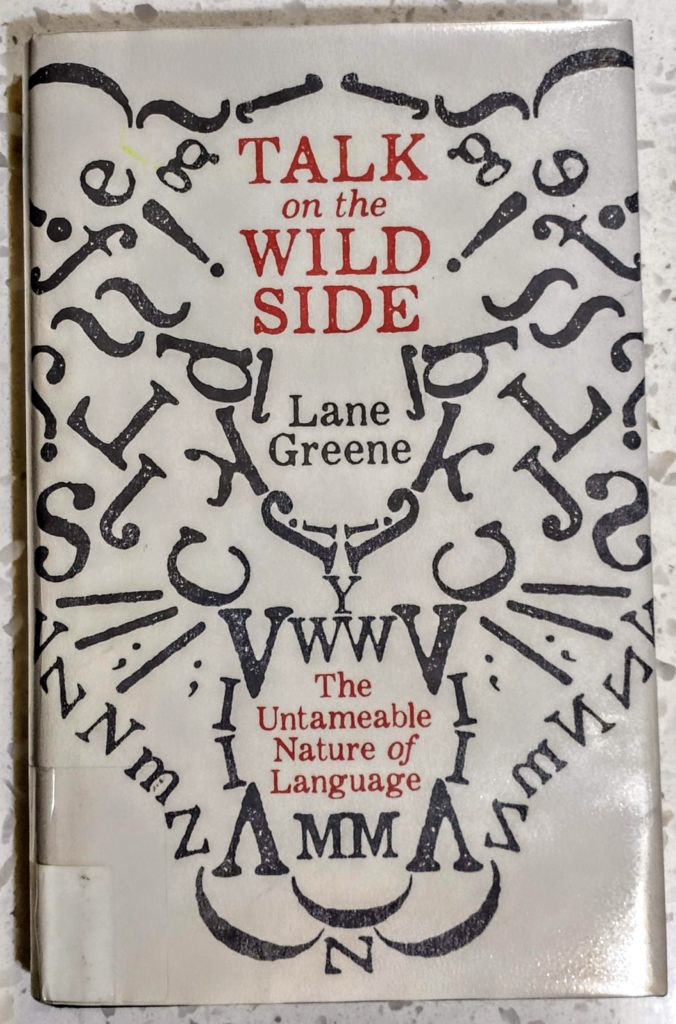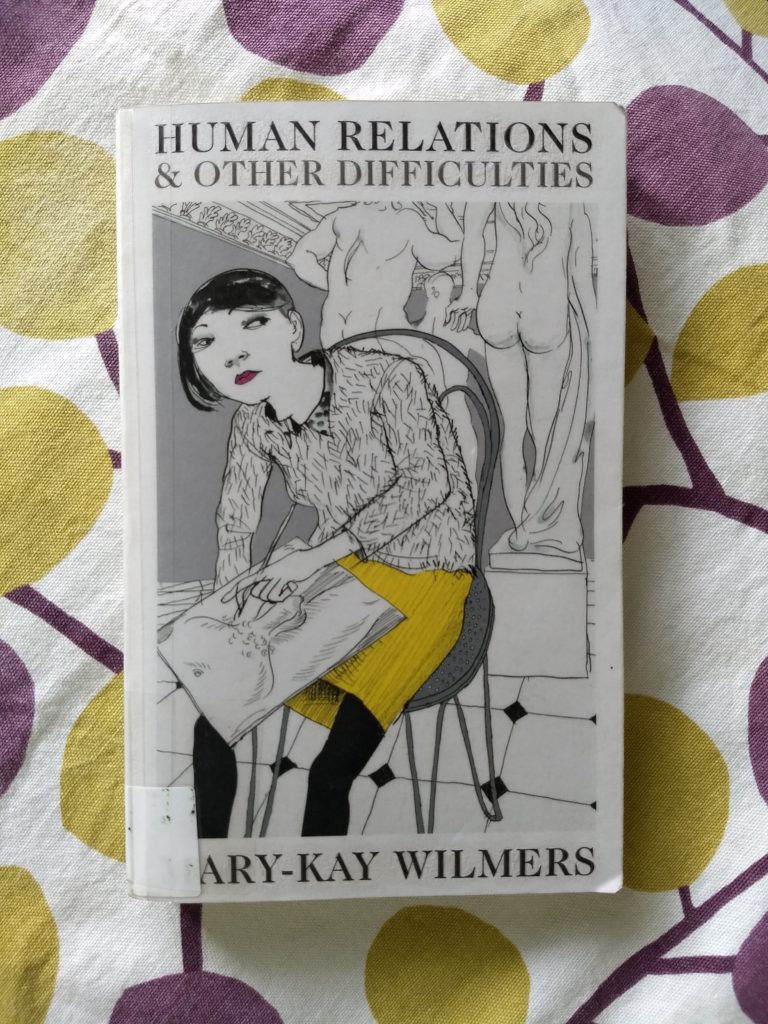
This random grab bag of philosophical ideas covers religion, ethics, metaphysics, logic and quite a lot more. It’s not really cohesive but it is interesting all the way through.
Continue reading
This random grab bag of philosophical ideas covers religion, ethics, metaphysics, logic and quite a lot more. It’s not really cohesive but it is interesting all the way through.
Continue reading
This book is a diary written by the last person on earth. It’s not initially clear what happened to everyone else, but we find out that she has been alone for some years, travelling around in abandoned cars and living in various interesting abandoned buildings (such as museums). It becomes clear that she is becoming a bit unhinged; understandable in her circumstances. To me this book reads like a study in memory, regret and self-deception, though that makes it sound a bit grim; there is a fair bit of humour in this book. The overall tone is reminiscent of Markson’s This is Not a Novel. Wittgenstein’s Mistress is more conventional, but that wouldn’t be hard: it’s still a strange, amusing and unsettling read.

Grayling always has something interesting to say, and a carefully-considered and nicely-worded way of saying it. This book is divided into three parts, devoted to Art, History and Science. Each part contains a dozen or so essays on related topics.
Continue reading
In 1962, a short philosophy paper caused a little flurry in philosophical circles. Two decades later David Foster Wallace, armed with further developments in analysis, created an elaborate system of notation to solve the problem raised in the paper. This book contains Richard Taylor’s original paper, the resultant flurry, and Wallace’s solution. It also contains a fair amount of background information about the whole exchange.
Continue reading
I almost always find it faintly depressing reading comment threads on social media. They so often consist of two sides vigorously attacking imaginary strawman arguments from the other side. Nobody wins; everybody just ends up looking shrill and petty. I often start typing a response, but usually think better of wasting my time adding fuel to the fire. As Alan Jacobs says in this excellent book: “We have an inbuilt and powerful disposition towards dichotomising — but one that we don’t have to obey.” I have gotten better at not doing this, partly because I find it so dispiriting when reading comments from people who have eagerly retreated far into their corner so they can poke barbs at the “other” in their corner.
Continue reading
A hundred or so years ago, the English working classes had terribly rough lives.They spent half their time working under harsh conditions and the other half desperately looking for work. They never had enough food or clothing. But despite their ragged clothing they were content to spend their lives working for the betterment of their fellow men — in particular, their employers, who did no productive work themselves but instead spent their time cheating and exploiting their clients and employees.
Continue reading
This is a description of how human languages work and why they cannot be tamed. Greene thinks we should understand language by understanding how it originated and developed, and allowing our understanding (and standards) to develop too. This is opposed to the “traditionalist” or “prescriptivist” point of view, which says we must determine the most logical set of rules for our language and defend them to the death. But the prescriptivists have been discredited now. We don’t think there’s anything wrong with splitting infinitives or ending with prepositions any more; even the singular “they” has become more and more acceptable, even before Facebook and all the modern gender pronoun malarkey. Like Thanos, it is inevitable.
Continue reading
I love reading almost anything that Martin Gardner wrote. His thinking is clear and logical, sensitive and nuanced. Mostly I have read his writings on mathematics and puzzles, though I also really enjoyed his book of essays The Night Is Large. Unfortunately, this book is not in the same league.
Continue reading
Mary-Kay Wilmers writes like she’s the editor of an august literary magazine. And in fact she is the founder and editor of my favourite magazine, the London Review of Books. She also writes for it sometimes, and this book is a collection of her writing from the magazine. In these pieces, her tone is dispassionate, even when she writes about herself; the end product is “clear as vodka”, as John Lanchester writes in the introduction.
Continue reading
This affecting story has a bit of mystery and a satisfying resolution, and some lovely writing along the way. I also quite appreciated the single-word chapter titles, which reinforce an atmosphere of uncertainty throughout.
Continue reading